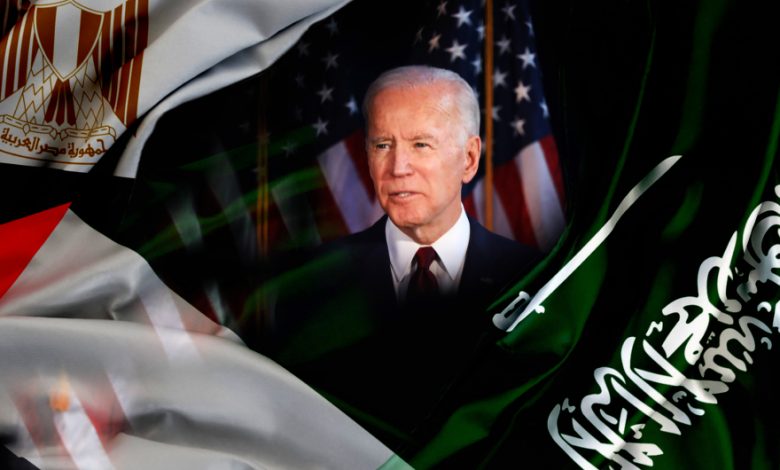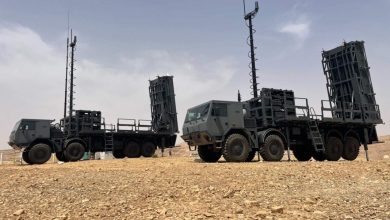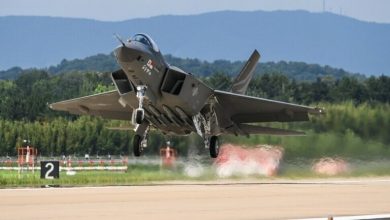Analysis: Has the ‘post-American’ Middle East arrived?

Once traditional allies of the US in the Middle East are now turning their backs on Washington and cozying up to Moscow and Beijing in a significant shift of loyalties.
When two of the loyalist US allies in the Middle East, Saudi Arabia and the United Arab Emirates (UAE), gave Washington the cold shoulder, you know that the oft-touted ‘post-American’ Middle East has arrived for real.
In fact, it was much more than just a snub; it was rather an act of outright defiance when Saudi Crown Prince Mohammed bin Salman and UAE President Mohammed bin Zayed, declined to pick up President Biden’s phone call as part of the latter’s efforts to substitute Russian oil in the market by getting non-Russian producers to increase oil output within the context of the war in Ukraine.
Although both Gulf princes had their own justifications and even ‘legitimate’ sources of resentment against the Biden administration, the treatment was still striking given the history and nature of the relations between Washington and its Gulf allies.
As both Riyadh and Abu Dhabi have been almost fully dependent on US security provisions for their survival and existence for decades, it is not easy to find precedents of the former standing up to the latter in this way in the history of their bilateral relations save for a few exceptional incidents.
More importantly, Riyadh and Abu Dhabi’s shrugging off of Biden was not limited to a ‘one-off’ protest; their act of defiance is also based on a concrete policy. Not long after Biden’s high-profile visit to Riyadh, which was mainly about ‘reassuring’ Washington’s traditional allies that ‘the US did not and would not abandon’ the region and, of course, getting them to increase oil output, OPEC+ announced a production cut, exactly contrary to what Biden requested.
Although one could argue that it was OPEC+’s decision rather than Riyadh and Abu Dhabi’s respective national policy or decision, Riyadh is known to have dominated the organisation, especially regarding the decisions over oil production volumes for decades. Furthermore, OPEC+ is a non-official formation, which is basically an expanded OPEC with the addition of other oil-producing countries led by Russia.
Just as OPEC has been dominated by Riyadh for decades, it is safe to say that OPEC+ has been dominated by Riyadh, and Moscow in a very similar fashion since its formation. As OPEC+’s decision to cut oil production would not be possible without the joint blessing of Riyadh, Moscow and Abu Dhabi as the leading members, Riyadh and Abu Dhabi’s act of defiance against Biden gain another meaning.
At a time when Biden desperately searches for any substitute for Russian oil and gas, to the extent of tapping even Iran and Venezuela, long-term ‘loyal’ US allies Riyadh and Abu Dhabi not only do not cater to Washington’s request but also act together and in unison with Moscow, to the chagrin of Biden.
Riyadh and Abu Dhabi’s alignment with Moscow despite Biden’s strong ‘advice’ is not only about an accidental and sectoral convergence over energy interests, but also about a bigger change in the nature of their relations with Washington. In fact, this change did not only affect Saudi Arabia and the UAE but also all other traditional US allies in the Middle East such as Israel, Egypt and even NATO ally Türkiye.
The change did not happen overnight; rather it has long been in the making since Washington’s strategic choice of ‘pivoting to Asia’, which gradually but steadily degraded the Middle East into a region of lesser priority and interest for Washington.
The gradual degradation of the Middle East as a region of priority for Washington inevitably led to its negligence towards the national and vital interests of its traditional allies in the Middle East. This negligence has also been exacerbated by Washington’s certain policy choices over the past decade, which amounted to ‘hostile acts’ in the eyes of its traditional allies.
After a painful period of struggling to adjust to the change in Washington’s approach to their respective relations with the former, regional actors seem to have finally recognised the nature of their relations with Washington for what it is: it is no longer a stable and strategic, but a rather unstable and transactional relationship.
The natural result of this recognition by regional actors has been diversification and balancing their relations with Washington through cultivating new ones with both Moscow and Beijing over the past decade.
All regional actors worked out a way of ensuring their national interests through deals with Moscow and Beijing to varying degrees in the absence of Washington, and ‘doing business’ with either Russia or China actually proved to be –maybe not easier — but much more predictable and stable than dealing with Washington.
Washington ceased to be a reliable partner or ally for its traditional allies in the Middle East due to a decade-long practice of alienating, neglecting and at times even undermining the national interests of its regional allies.
It is no coincidence that all major traditional US allies in the Middle East–Saudi Arabia, the UAE, Egypt, Türkiye and even Israel–embraced an ambivalent position towards Russia and resisted bandwagoning Washington in the war in Ukraine because of their substantial relations with Moscow.
None of these regional actors are in the mood of damaging or severing their relations with Moscow for the sake of an unattending and unpredictable Washington. This is why we are witnessing undeterred acts of standing up to Washington by regional actors, which were incomprehensible as recently as a decade ago.





